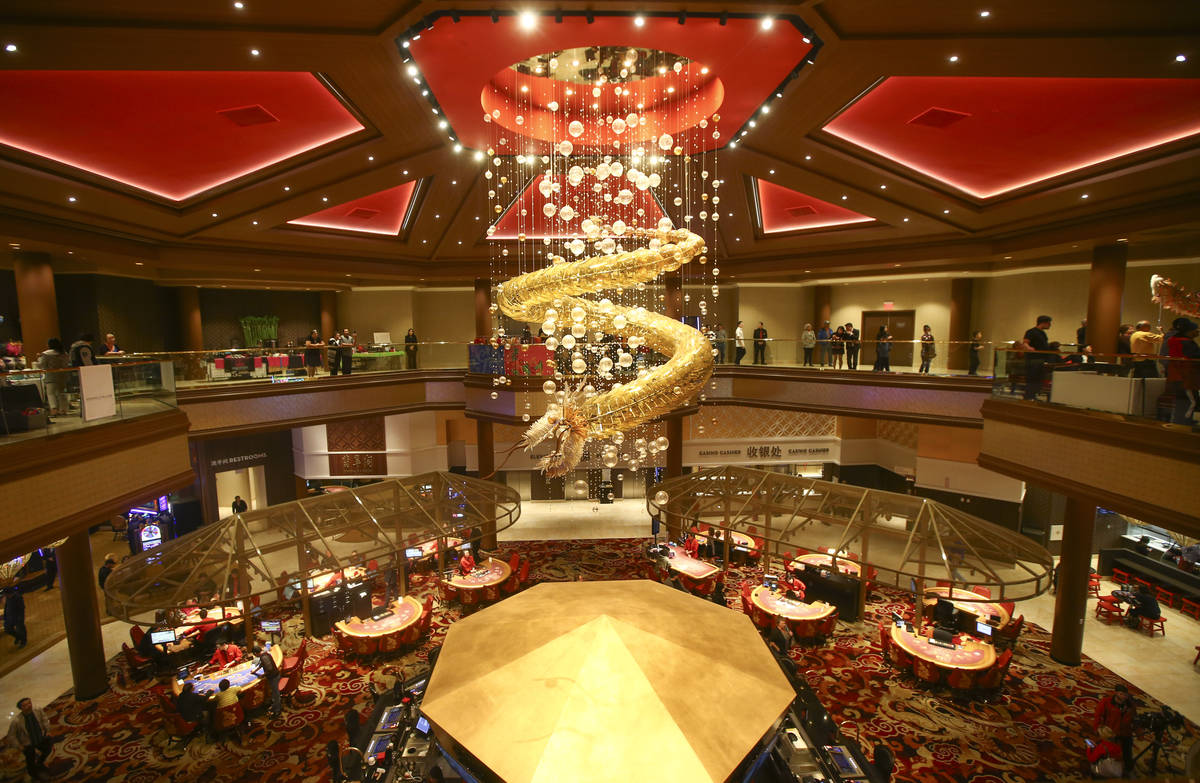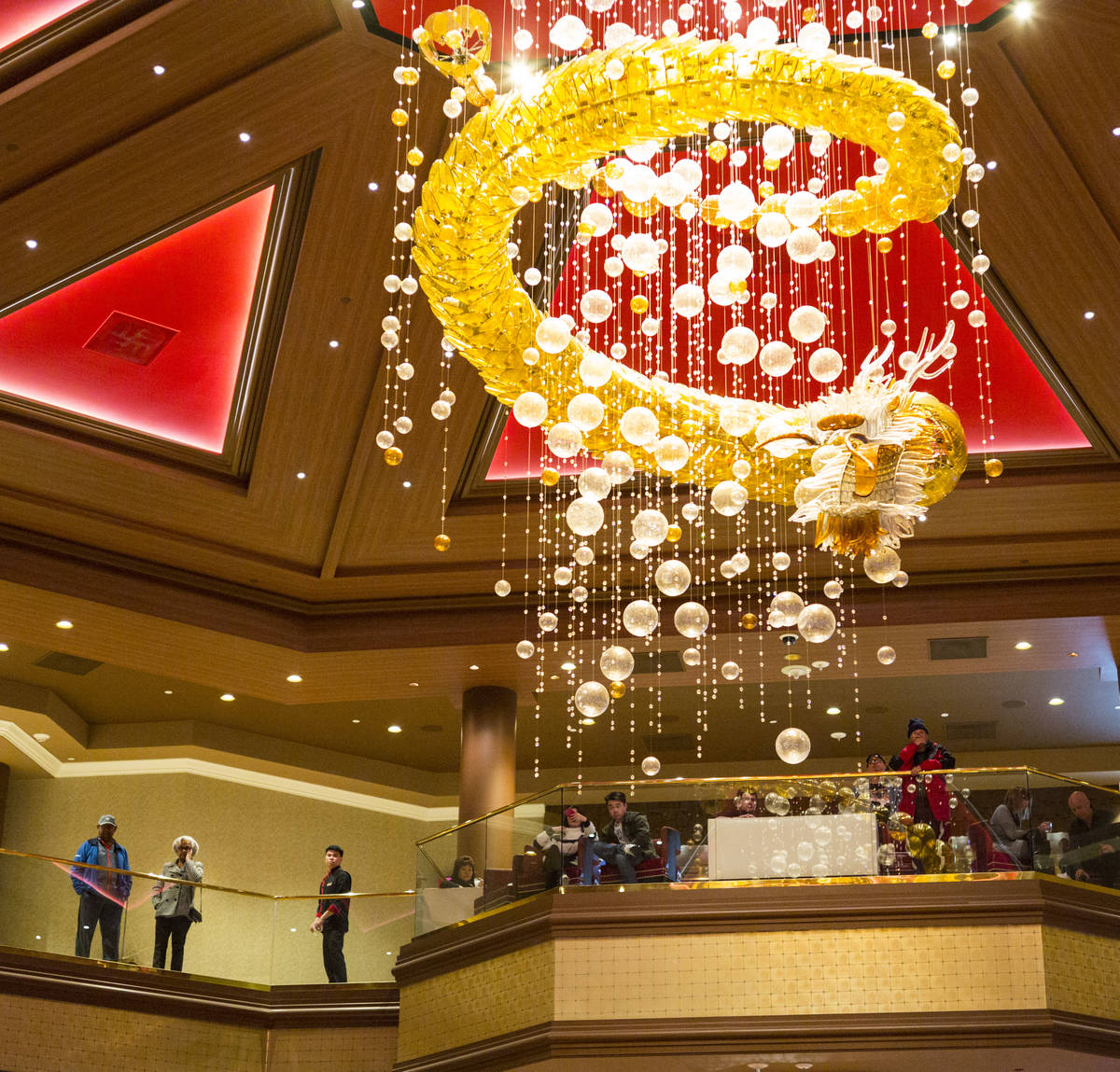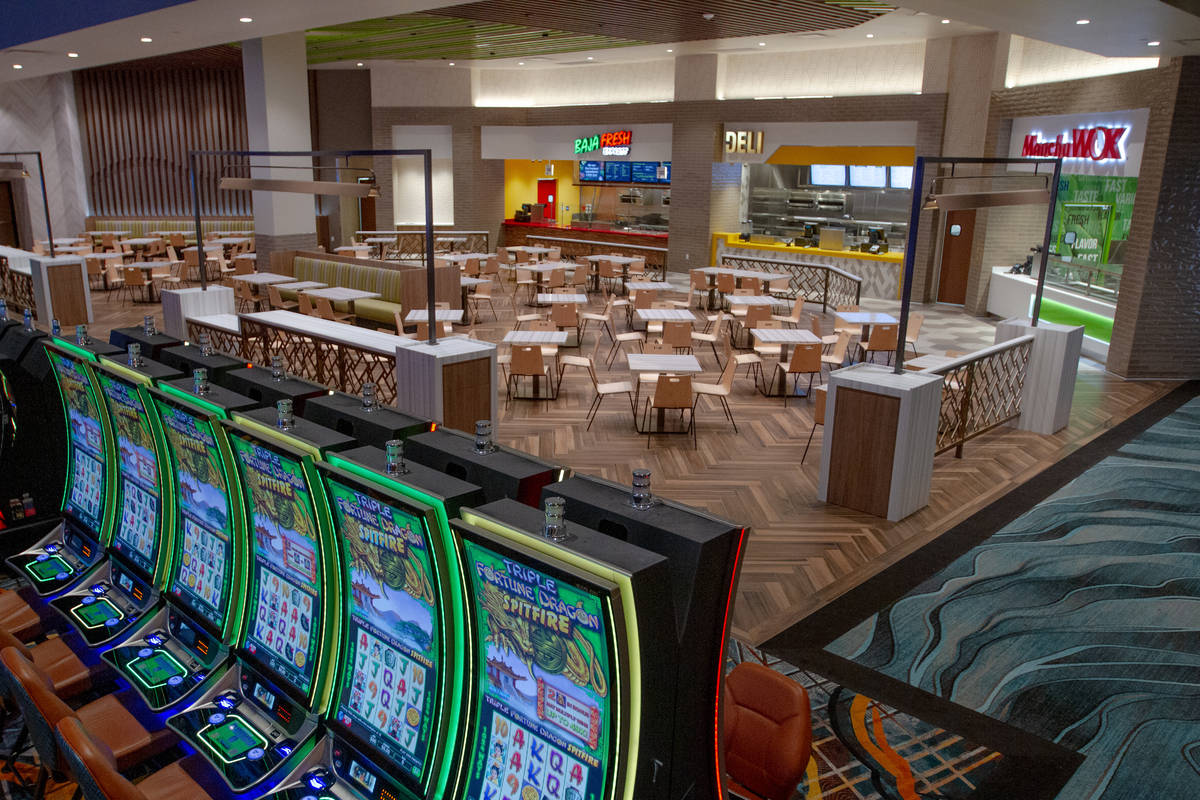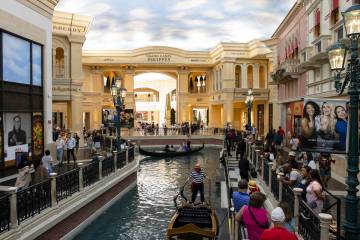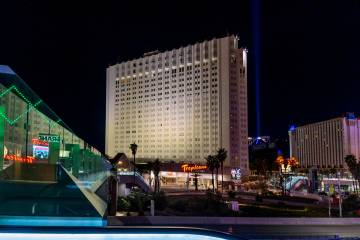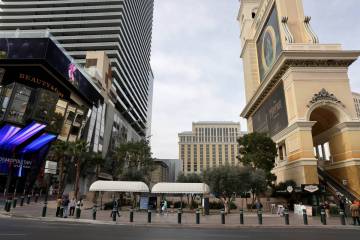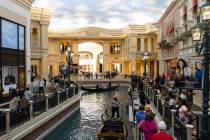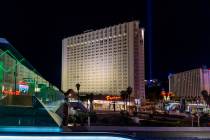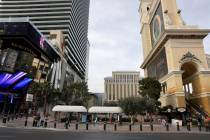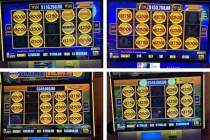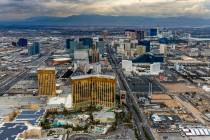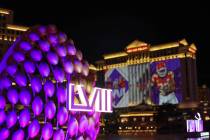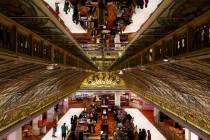Lucky Dragon sculpture from failed Las Vegas casino finds new home
A casino outside Seattle that reopened Tuesday is set to feature a glitzy leftover from a failed Las Vegas resort: the Lucky Dragon’s dragon.
Muckleshoot Indian Casino bought the one-and-a-quarter-ton glass dragon sculpture last month and plans to install it in a new high-limit room this summer, representatives said.
The Lucky Dragon’s former centerpiece was supposed to bring “luck and good fortune” to its guests, a news release once touted, and was suspended above the casino floor. But the resort flamed out fast, and now Muckleshoot bosses hope the dragon will boost the casino’s popularity with its own Asian gamblers.
Johnny Walker, Muckleshoot’s executive director of gaming, said they bought the sculpture from Las Vegas businessman Don Ahern, who purchased the shuttered Lucky Dragon last year and renamed it Ahern Hotel.
Muckleshoot executives did not disclose the dragon’s purchase price.
Ahern did not respond to requests for comment.
Walker said management believes the dragon will help the Washington casino dominate the market for Asian gamblers and “bring excitement and good fortune to all our guests.”
Plus, western Washington is a hub for custom glass art, and locals appreciate the craft, according to Junior Maldonado, Muckleshoot’s gaming business leader and a member of the tribe that owns the casino.
Made in the Czech Republic, the dragon spans nearly 15 feet, nose to tail, and features 288 hand-blown glass orbs and 762 customized glass scales, according to a fall 2016 news release from the Lucky Dragon.
“It’s like a perfect marriage for it to be here,” Maldonado said.
Casino bosses weren’t worried the sculpture would bring bad luck after the Lucky Dragon’s brief, volatile run, according to Muckleshoot general manager Conrad Granito.
They view the dragon as artwork that will resonate with customers, he said.
The casino, in Auburn, Washington, about 30 miles south of Seattle, closed in March as the coronavirus pandemic started shutting down much of the U.S. economy. As part of its reopening, workers will monitor guests for signs of illness with thermal detection technology and ask them “to return another day” if they have symptoms, its website says.
Owned and operated by the Muckleshoot Indian Tribe, the casino features 3,500 slot machines, around 70 table games and eight restaurants, and there are plans to build an 18-story hotel, Granito said.
The Lucky Dragon, 300 W. Sahara Ave., was the first hotel-casino built from the ground up in Las Vegas since the Great Recession. It opened in fall 2016 and tried to lure a coveted slice of Las Vegas’ tourism market — Asian gamblers.
But it struggled to draw big crowds and suffered a swift demise.
Developed by Andrew Fonfa, the Chinese-themed property closed its casino and restaurants, filed for bankruptcy, closed its nine-story hotel tower, sealed the 2.5-acre property with chain-link fencing and was foreclosed on by lenders — all less than two years after it opened.
Ahern, head of Las Vegas construction-equipment firm Ahern Rentals, bought the property in spring 2019 from the lenders for $36 million.
He told the Review-Journal in February – before Southern Nevada rapidly shut down in March over fears of the coronavirus – that the hotel had reopened a few months earlier and sold thousands of room nights.
He planned to have convention space and restaurants at the property but no casino.
Contact Eli Segall at esegall@reviewjournal.com or 702-383-0342. Follow @eli_segall on Twitter.



